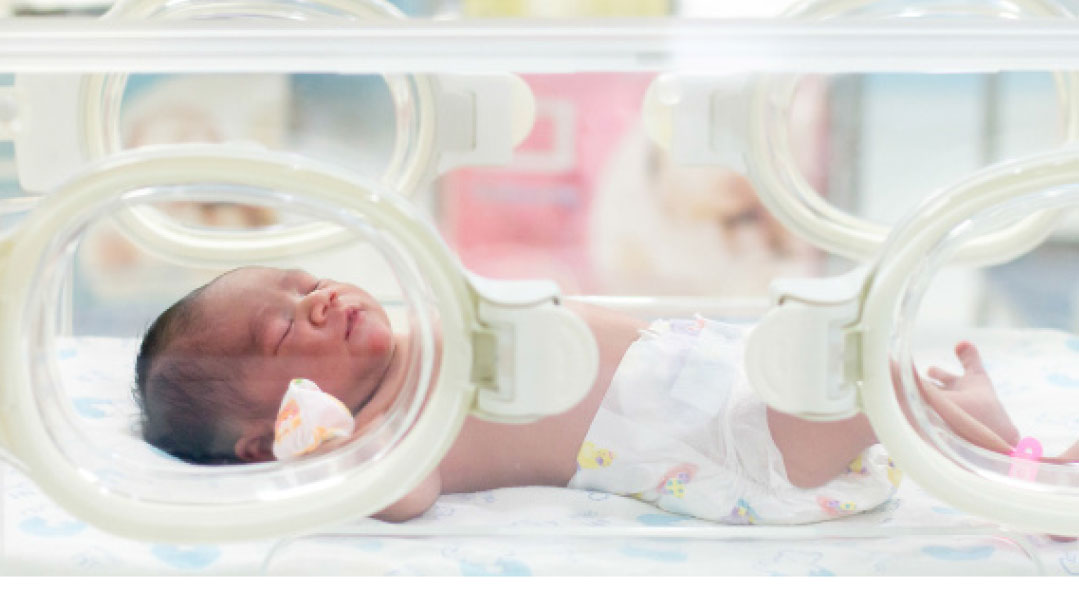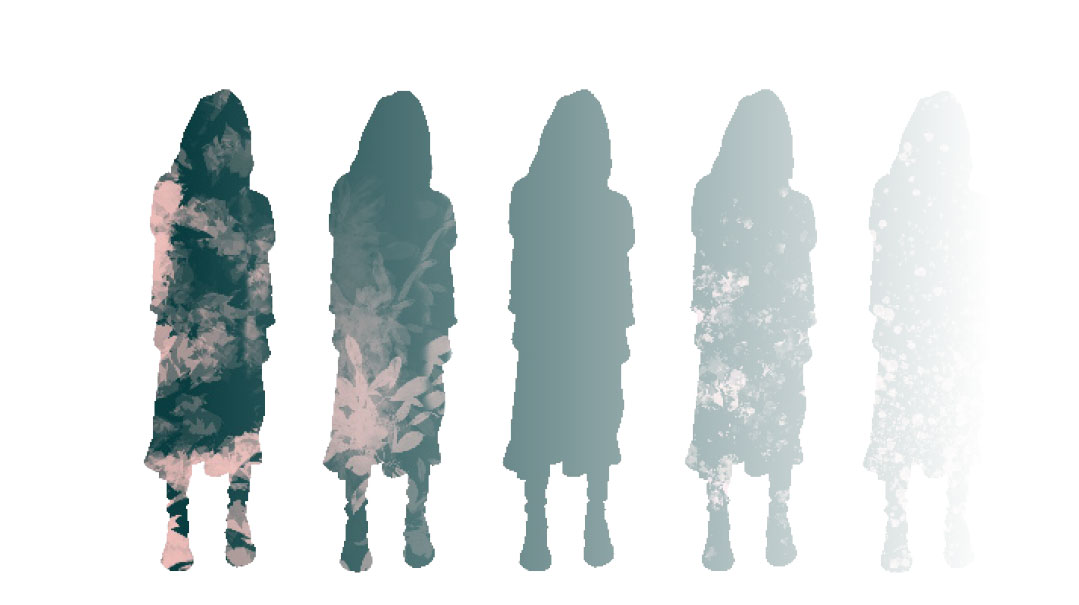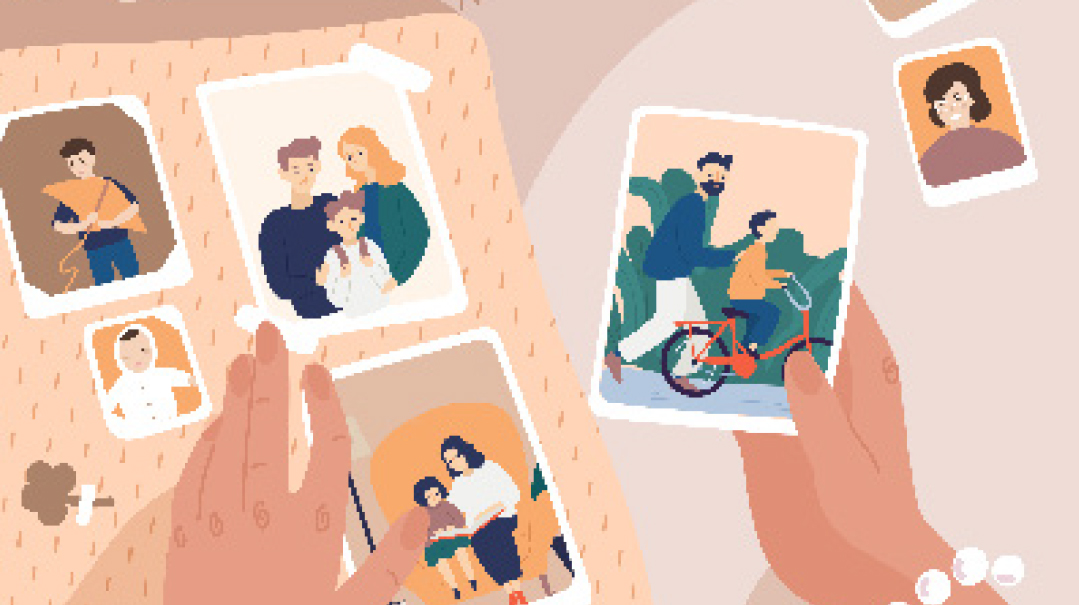One Percent Chance
| October 14, 2020My baby was so close and yet still out of reach. All I could do was say Tehillim and beg Hashem to intercede

wIas expecting my first child when my sister, Gittel, called to tell me that she was getting engaged. Gittel and I are polar opposites but very close, and moving to Yerushalayim after my marriage hadn’t changed that.
I was ecstatic, but a quiet fear niggled at the back of my mind: Would I make it to the wedding? It was summertime, and I was due the day after Succos. I reassured myself that surely it would all work out, everyone knows how close we are; the couple would get married a few weeks after Succos and I’d join straight from the hospital, if necessary.
Wishful thinking aside, logistical considerations meant the wedding was ultimately scheduled for right after Succos, the day after my due date. I was torn. We’d have to choose between spending Yamim Noraim in America, away from my husband’s yeshivah and Eretz Yisrael, or staying home and missing the wedding. We discussed the issue ad nauseam and finally chose to stay put. I was still davening to make it to the wedding, but I knew the odds were stacked against me.
It was a Tuesday evening during bein hazmanim, after a busy day, when I realized I hadn’t felt movements in a while. I drank grape juice, and when that didn’t help, called home to see what my mother thought. My father, a rav who’d seen a lot, answered and encouraged me to get checked out, though it was probably nothing.
I didn’t want to. I was exhausted, and didn’t believe there was really anything wrong. But my husband didn’t think we should wait, so we headed off in the middle of the night expecting to get “laughed out of the hospital.”
We weren’t laughed out. An ultrasound showed that while the baby was breathing, she wasn’t moving. After several hours on the monitor, there was still no fluctuation in her heart rate.
The doctors weren’t sure what the problem was, and told us they suspected the baby might have a genetic or neurological issue. I was terrified. My baby was so close and yet still out of reach. All I could do was say Tehillim and beg Hashem to intercede.
That day, my brother and sister-in-law, Shimon and Simcha, arrived in Eretz Yisrael on vacation. Providentially, Simcha is a midwife, and when they got our frantic messages, they made a beeline to the hospital. Simcha conferred with the doctors, making suggestions for other diagnostic tests, and comforted us.
That night, alone in my hospital bed, I began to feel stomach pain. I mentioned it to my mother, and she was immediately concerned. “You should tell the nurses,” she insisted.
I’ve never liked to be a bother, especially over something as silly as a stomachache. “It’s not a big deal,” I assured her. But as the night progressed, the pain intensified until it was nearly unbearable.
Finally, I said something to a nurse, but she brushed it off.
“It’s just contractions from dehydration,” she told me. “We’ll put you on an IV.” By 3 a.m., in agony and afraid for my baby, I told the nurses that the IV wasn’t helping. The nurses sent down a doctor who informed me that I was in labor.
I couldn’t believe it. I wasn’t due for another two months. This was nothing like I’d imagined labor would be — already in the hospital, my baby’s condition so uncertain. My husband rushed back to the hospital as I was sent to labor and delivery, where the doctors tried to stop my labor.
In the morning, I updated my family and my doula. My doula came straight over, joined shortly by Shimon and Simcha, who’d hurried over with their own baby. We were all in the room when the head of the department brought in a whole class of medical students to examine me and my situation, offering grim options.
We could wait two weeks and see how the baby progressed; we could terminate the pregnancy now; I could carry on with my labor and have the baby naturally, which would decrease the baby’s chances of survival; or they could deliver the baby via C-section. My doula, who was most familiar with the hospital and the professor, asked him what he would decide if it was his own daughter.
He didn’t hesitate. “I would terminate the pregnancy,” he said. “The baby either has a spinal-cord injury or brain damage.”
“What chance does this baby have?” I asked, trembling. “How likely is it that I’ll be able to bring her home?”
The professor considered. “Maybe a 1 percent chance,” he said, his tone somber as he gave my baby a near-death sentence.
A 1 percent chance. Maybe the professor had only meant it to cover himself in case of a malpractice suit, but it made my heart leap in my chest. Only a few days before this nightmare had begun, my husband and I had learned together that one can daven for a neis if there is a possibility — no matter how remote — that something can change. I felt my spirits lifting with determination; statistics aside, my baby had a chance! Together, we continued our heartfelt tefillos for a neis.
Meanwhile, the doctor was waiting for us to choose a course of action, but this was beyond our pay grade. We needed daas Torah. My husband and doula sat by the phone, trying to get through to a rav. An hour passed, and the professor returned to my room for our decision, but we still had no answer. One of our regular poskim was out of town for the week and the other didn’t feel comfortable paskening a sh’eilah of this magnitude.
Then, while my husband was on the phone, the doctors came back in and changed the equation. The labor was too far along for me to be transferred to another hospital for a termination, or to wait two weeks. The doctors’ attempts to stop labor hadn’t worked. At this point, it was just a matter of choosing to operate or attempt a normal delivery.
Meanwhile, far away in America, my father had just heard from Shimon what was happening. He hung up the phone, and explained to the few members of his kehillah standing nearby what was happening. A few hours later, one of those balabatim appeared at my parents’ front door with the money to cover one last-minute ticket to Eretz Yisrael. There were only a few flights left that arrived before Shabbos, and my father hurried to the airport, just as we got in touch with a major posek.
The verdict was in: I was to be operated on right away. I was wheeled into the operating room in a daze, davening as I drifted into woozy half-consciousness.
I woke up to a cry and a flash of a tiny, full head of hair. The only thing I knew as I was taken into the recovery room was that my baby girl had survived the birth. My husband, waiting outside the operating room, watched as a full team of neonatologists and pediatric specialists rushed the baby to the NICU. All they could tell him was that things didn’t look good. The baby hadn’t moved, and the doctors were doubtful if she’d progress to be more than a vegetable.
Eventually, my husband was admitted to the NICU. “She’s moving,” the nurses told him. But the doctors still didn’t know what had caused the inactivity. They assumed that it was probably some sort of infection, and her future was extremely uncertain.
I, on the other hand, was oblivious. My baby had already passed the first major hurdle and I was optimistic. I realized the future was uncertain, and except for my closest friend, I didn’t call anyone to let them know I’d given birth. But I also felt calm, although to this day I’m not sure why.
Late that night, I was finally taken to the NICU to meet my daughter and get an update. As I entered the room, the nurses glanced at me with pity. This was no newborn snuggled in a blanket and lying peacefully in a crib. My baby was the size of a doll and ensconced in an incubator, covered in tubes and wearing thick black glasses to protect her eyes.
Blinking back tears, I slipped my hand into the incubator. I touched her palm with my finger, and I felt her fingers close around mine.
My father arrived at the hospital on Friday morning. Only then did he hear that the baby had been born. On Leil Shabbos, he went to the NICU to meet with the doctors. He was told that the baby wasn’t displaying the signs of spinal injury or lack of brain function that we’d expected, even though she was still very sick. She had a fever and a mysterious rash. The hospital had been unable to find the source of the infection, and the baby was only going to get worse as they struggled to diagnose her.
Still, heartened by some good news, my father turned to see the baby and to give her a brachah on her first Leil Shabbos. He put his hands over the incubator and murmured the brachah. To his surprise, he was answered by an “Amen,” then a second, then more. He turned around.
The doctors and nurses in the NICU — Jew and non-Jew alike — were all standing still, watching him expectantly. My father paused. One of the nurses gestured to the next incubator. “Nu?” she said.
My father finally understood what she was asking. Quietly, he walked to the next incubator and gave the baby in there a brachah as well. One by one, he went from baby to baby, giving each a brachah to the medical staff’s respectful Amens.
Once he had given all of the babies brachos, he turned to give me my Friday night brachah as well.
As he pulled his hands away from my forehead, he looked concerned. “You’re burning up,” he said.
I had a fever, just like my baby, and a rash that no one had noticed before. By the end of Shabbos, my baby and I had a dual diagnosis. I had contracted listeria, a virus similar to salmonella that’s transmitted in food, and although originally it hadn’t shown up in any of my blood tests, my baby was sick with it, too.
That breakthrough heralded a flow of nissim that didn’t stop. Very slowly, our baby started progressing, breathing on her own and eventually eating. When she was ten days old, I was finally allowed to hold her for the first time, and by two weeks old, she was off oxygen. The nurses were very devoted to her, particularly one American expat who took a liking to our little princess.
I developed a routine, going to the hospital every morning before 8 a.m., and staying until 7 p.m. Every Shabbos and Yom Tov we were beneficiaries of the incredible hachnassas orchim of the families who lived on the road behind the hospital. Every week, we’d be in touch with one of the ladies who lived there, and she’d find us an empty apartment or a gan to sleep in. The gans on that road were each equipped with two folding cots and a hot plate just for families like ours. Mi k’amchah Yisrael!
The morning after Shemini Atzeres, just one day before my original due date, we were finally told that the baby was as healthy as a regular newborn, and we could bring her home the next morning.
After a few seconds of celebration, my husband turned to me. “Do you still want to go to Gittel’s wedding?” It was Tuesday, and she was getting married on Thursday.
“Of course!” I responded. “But there’s no way the doctors are letting the baby fly so soon after discharge.” She was a preemie with a history, and she still weighed less than a typical newborn.
But we tried our luck, catching the doctor on the way out of the room. He smiled. “She can fly tomorrow afternoon if you want,” he said unequivocally. I was overjoyed.
We began a whirlwind of packing and arranging. I remembered that one of my father’s balabatim — a man who knew the American ambassador — was in Eretz Yisrael for Succos. As soon as Yom Tov was over for chutznikim, I called to ask him for help.
But as we spoke, I discovered I had the wrong person. It had been another man from the shul whom I’d been thinking of.
“I don’t know the ambassador,” this man said, apologetic, “but I do know one of his top aides. Can I put you in touch with him?” The aide promised me that the newly opened Jerusalem embassy would help us procure a passport for my new daughter as soon as we left the hospital.
Our next plan of action was to get tickets. We waited until the middle of the night, when Yom Tov was over in America, and called my father to book tickets for us. We told him that he couldn’t share the news with anyone else in the family. We wanted to surprise the kallah and my mother, who had both been davening for so long and wanted so badly to meet our little girl. With less than 24 hours to go, we booked tickets for Wednesday evening, which would get us in at about 5 a.m. on the day of the wedding.
Morning came, and we anticipated our long-awaited discharge from the hospital. But time dragged on, we had yet to be released, and we realized we might not make it to the embassy in time. The aide who had spoken to us had offered to keep the Jerusalem office open until 3 p.m., but we were running out of time. We kept busy while we were waiting by taking the baby’s passport picture as she lay in her hospital cot, calling one insurance company after another in an attempt to get traveler’s insurance for a baby with her medical record. Finally, at two thirty, we were given the discharge papers and we flew in a taxi straight to the embassy.
At 6:30 p.m., I was packing for the trip when Gittel called. She was so excited that the baby would be coming home soon, but she was also heartbroken that I’d be missing her chasunah. I commiserated with her and told her I’d still try to speak to her before the wedding.
“I’ll be with you in any way that I can,” I told her, holding back my laughter.
We landed in America on time without incident, though many fellow passengers commented on my tiny baby.
My sister was still asleep in her room when I got to my parents’ house. I crept into her room, carrying the baby.
“Gittel,” I whispered. “Gittel! I decided to come to your chasunah after all.”
Gittel blinked up at me. “This has got to be a dream.”
Next up, I woke my mother so she could meet her newest granddaughter. The happiness and relief that permeated the house that morning was intoxicating. My family had been davening for our tiny precious girl for so long, and felt so connected to her. Now, she was here with them in person, every bit as perfect as they’d imagined.
And I was able to share in my beloved sister’s simchah, months after I’d proclaimed that I’d somehow, impossibly, make it, with my husband and daughter in tow.
Earlier this year I gave birth to my second child, an uncomplicated experience that I appreciated tenfold after what I’d been through with my first.
Our oldest is now nearly two years old and developmentally healthy in every way, a living testament to the Yad Hashem that guides us every day. I think often of that 1 percent chance — that moment of decision where I was told that the best outcome was practically impossible — and I focus on the Hashgachah that followed.
I tell my story now, as accurately as I can, for that reason: to share the inspiration and the comfort I’ve derived from that experience every day since.
(Originally featured in Family First, Issue 713)
Oops! We could not locate your form.






